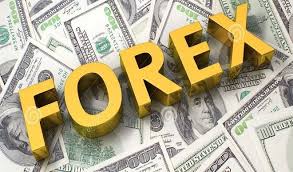Nigeria has recorded a significant 66% increase in foreign exchange (FX) supply, reaching $15.2 billion through the official market window, despite recent interest rate hikes by the Central Bank of Nigeria (CBN). The naira has appreciated slightly in the official market, illustrating the complex dynamics at play in the country’s volatile financial landscape.
Naira Gains Amidst Volatile FX Market
The Monetary Policy Committee (MPC) of the CBN attributes the recent fluctuations in the foreign exchange market to “seasonal demand” for the US dollar. On May 21, 2024, data from FMDQ indicated that the naira-dollar exchange rate in the official NAFEX Window was N1465.68/$1, reflecting a modest 0.23% appreciation. On the same day, FX supply surged to $268.17 million, marking a 66.14% increase.
This marks the third consecutive appreciation of the naira in May. Previously, on May 17, the naira had closed at N1497.33/$1, appreciating by 2.45%, despite a significant drop in FX supply to $83.5 million, a 69.40% decrease. By May 20, the naira further appreciated to N1468.99/$1, with FX supply climbing to $161.41 million, a substantial 93.31% rise.
Despite the increased FX supply, the naira’s appreciation has slowed, indicating underlying market pressures and complexities. During intra-day trading on May 21, the exchange rate fluctuated, peaking at N1,549/$1 and dipping to N1,401/$1, underscoring the erratic nature of the market.
CBN’s Aggressive Monetary Policy
In response to persistent inflationary pressures, the CBN has raised the monetary policy rate (MPR) by 150 basis points, bringing it to an unprecedented 26.25% at the conclusion of its 295th MPC meeting. This increase follows a previous hike of 200 basis points, which set the MPR at 24.75%.
CBN Governor Yemi Cardoso announced this aggressive rate hike, emphasizing the central bank’s commitment to monetary tightening to curb inflation and stabilize the naira. The policy adjustment aims to attract foreign investment and support the naira by making Nigerian assets more attractive to investors.
Broader Economic Context
Despite these measures, the immediate impact on the naira’s value has been tempered by broader economic conditions. Investor sentiment, market speculation, and external economic factors continue to play significant roles in determining the currency’s trajectory. The deceleration in the naira’s appreciation, despite higher FX availability, highlights these complexities.
The increased FX supply and interest rate hike are significant steps, but experts suggest that deeper economic reforms are necessary for sustained long-term currency stability. While these measures provide immediate relief, addressing the root causes of economic volatility is crucial for ensuring the naira’s future stability and resilience.
Bottom Line
The substantial rise in foreign exchange supply and the CBN’s aggressive monetary policy highlight the ongoing efforts to stabilize Nigeria’s financial markets. However, the nuanced interplay of various economic factors suggests that maintaining long-term stability will require comprehensive and sustained reforms beyond short-term policy adjustments.











